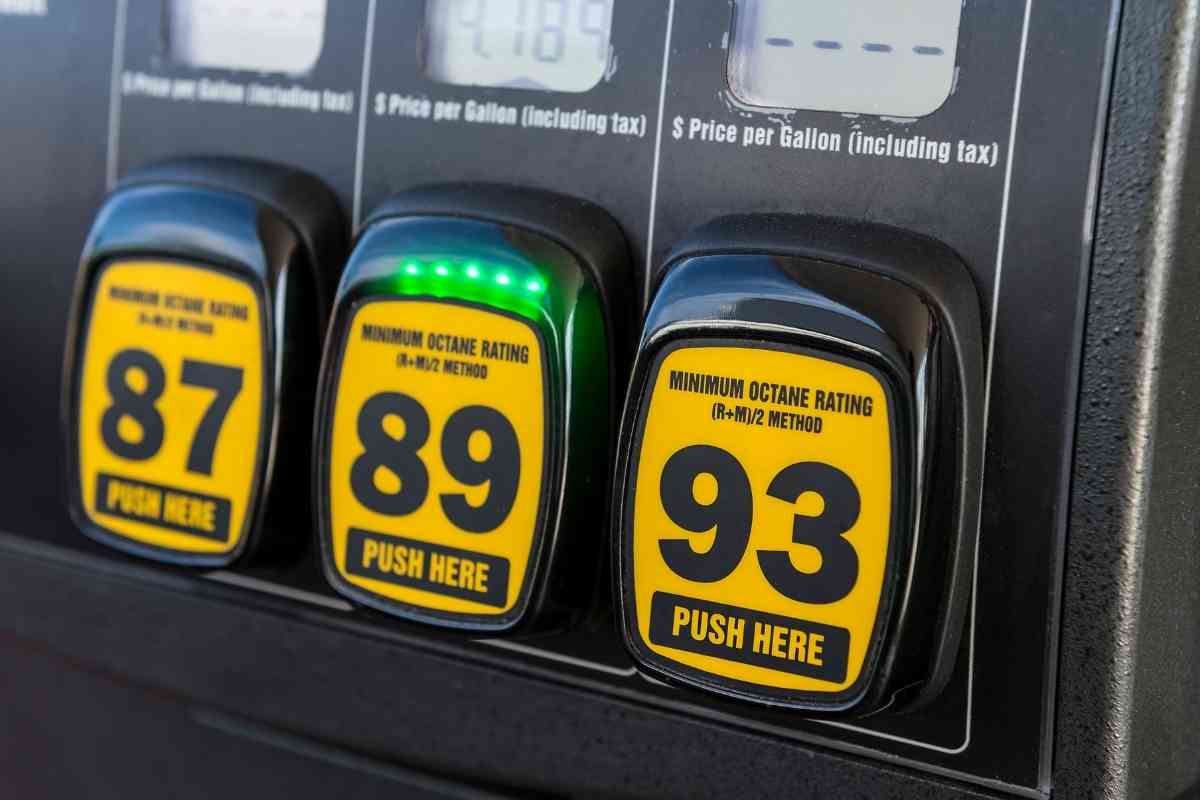89 vs 93 Gas The Ultimate Guide to Fueling Your Ride

Ever stood at the gas pump, staring at the octane options, wondering what the real difference is between 89 and 93? It's a common conundrum, and the answer isn't always straightforward. This isn't just about a few extra cents per gallon; it's about understanding how different fuel grades interact with your engine and affect its performance and longevity.
Choosing the right octane is a crucial aspect of car ownership, yet often overlooked. This guide dives deep into the nuances of 89 vs. 93 gas, exploring the science behind the numbers and the impact on your vehicle. We'll dispel common myths, providing you with the knowledge to make informed decisions at the pump and maximize your driving experience.
The difference primarily boils down to the fuel's resistance to knocking. Knocking or detonation is the uncontrolled explosion of fuel in the engine's cylinders, which can cause damage over time. Higher octane fuels like 93 are more resistant to this pre-ignition, especially under stress like high compression and turbocharging.
Historically, the need for higher octane fuels emerged with advancements in engine technology. As engines became more powerful and efficient, the compression ratios increased, demanding fuels that could withstand the higher pressures without detonating prematurely. This led to the development of higher octane gasoline grades.
Understanding the disparity between fuel grades is essential for maintaining your vehicle's health and performance. Using the incorrect octane can lead to decreased fuel economy, engine damage, and reduced power output. The right choice depends largely on your car's make and model, specifically its engine design and manufacturer's recommendations.
Octane rating is a measure of a fuel's resistance to knocking. A higher number indicates greater resistance. Simply put, 89 has a lower resistance to knocking compared to 93. Your owner's manual provides the recommended octane for your specific vehicle.
One potential benefit of using 93 octane in an engine designed for it is improved performance, particularly in high-performance vehicles. For some cars, using premium fuel can unlock additional horsepower and torque. Another advantage could be better fuel economy under heavy loads, although this isn't always the case. Finally, using the recommended fuel can help maintain engine health and prevent long-term damage.
Advantages and Disadvantages of Different Octane Levels
| Octane | Advantages | Disadvantages |
|---|---|---|
| 89 (Mid-Grade) | Lower cost per gallon, suitable for many standard vehicles | May not be suitable for high-performance engines, potential for reduced performance and fuel economy in certain vehicles |
| 93 (Premium) | Better performance in high-performance engines, increased knock resistance, potential for improved fuel economy under load | Higher cost per gallon, unnecessary for many standard vehicles |
Best Practices:
1. Consult your owner's manual: This is the ultimate guide to your car's fuel requirements.
2. Avoid using lower octane than recommended: This can lead to engine damage and decreased performance.
3. Don't assume higher octane always means better: If your car is designed for 87 or 89, using 93 likely won't offer any benefits and is a waste of money.
4. Pay attention to your car's performance: If you hear knocking or experience reduced performance, try a higher octane.
5. Consider fuel additives cautiously: Consult a mechanic before using any additives, as they may not be necessary or could even cause harm.
FAQs:
1. What is octane rating? It's a measure of a fuel's resistance to knocking.
2. Can I use 93 in my car if it recommends 87? It's generally not harmful but likely won't provide any benefits.
3. Will using premium fuel clean my engine? Not necessarily. Use a dedicated fuel system cleaner if needed.
4. Does higher octane mean more power? Only if your engine is designed for it.
5. What causes engine knocking? Premature detonation of fuel in the cylinders.
6. How can I improve fuel economy? Proper tire inflation, regular maintenance, and efficient driving habits.
7. Is there a difference between brands of gasoline? Generally minor, but some brands may contain different additives.
8. Can I mix different octane fuels? Yes, but it will result in an octane level somewhere between the two mixed fuels.
Tips and Tricks: Keep track of your fuel economy to see if different octane levels make a difference in your vehicle. If you are unsure, stick with the manufacturer’s recommendation. Avoid topping off your tank as it can lead to fuel system issues.
Understanding the distinctions between different octane levels, like the contrast between 89 and 93 octane fuel, is crucial for responsible car ownership. It directly impacts your vehicle’s performance, fuel economy, and the longevity of your engine. While higher octane fuel can be beneficial for high-performance vehicles, it’s not a universal solution for every car. By adhering to your manufacturer's recommendations and understanding the science behind octane ratings, you can make informed decisions at the pump, save money, and ensure your engine runs smoothly for years to come. Take the time to learn about your car’s specific needs and fuel requirements, and you’ll be well on your way to a more efficient and enjoyable driving experience.
Mastering metric bolt torque specs in aluminum a comprehensive guide
Beyond the stereotype embracing curvy elven figures in anime
Soar through the stars exploring free online x wing games












